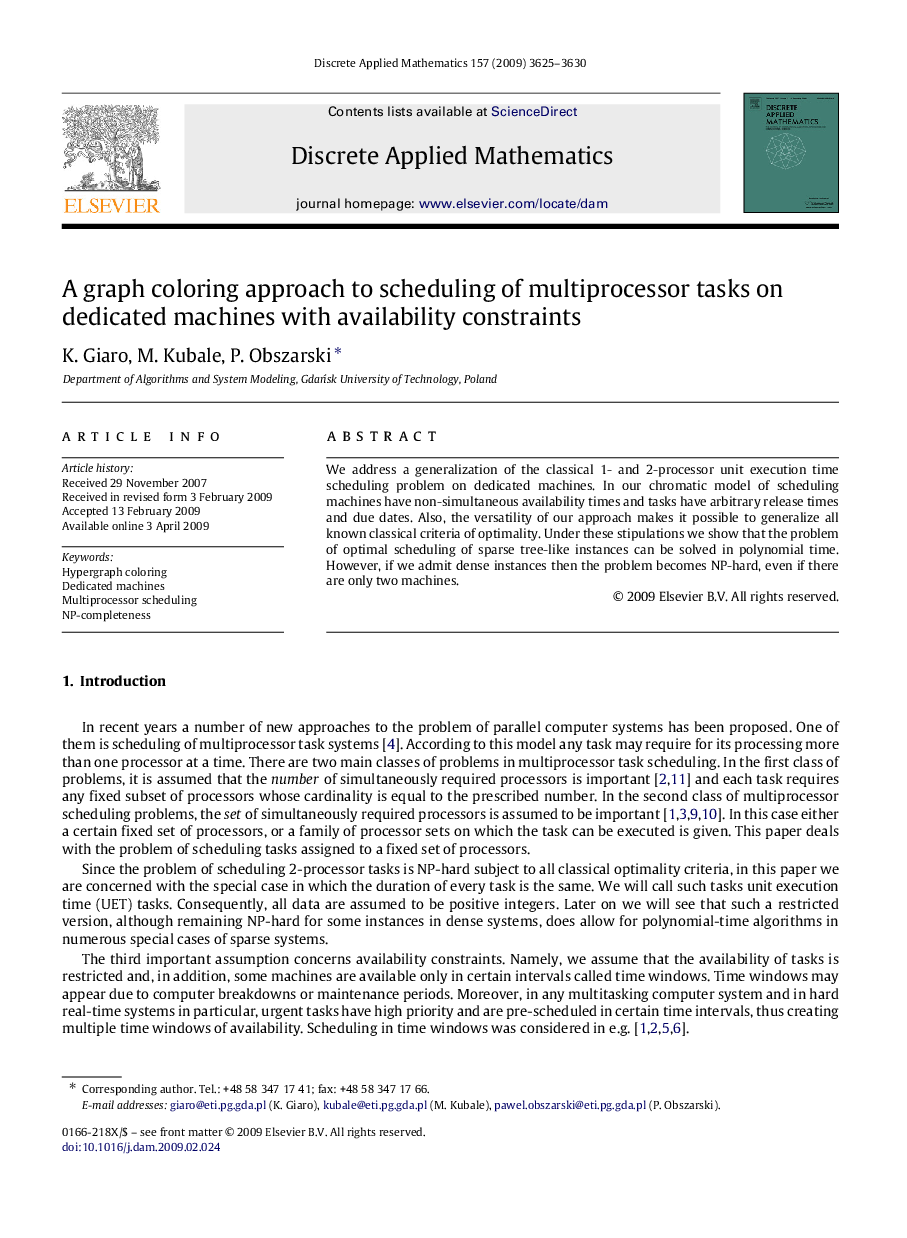| Article ID | Journal | Published Year | Pages | File Type |
|---|---|---|---|---|
| 420483 | Discrete Applied Mathematics | 2009 | 6 Pages |
Abstract
We address a generalization of the classical 1- and 2-processor unit execution time scheduling problem on dedicated machines. In our chromatic model of scheduling machines have non-simultaneous availability times and tasks have arbitrary release times and due dates. Also, the versatility of our approach makes it possible to generalize all known classical criteria of optimality. Under these stipulations we show that the problem of optimal scheduling of sparse tree-like instances can be solved in polynomial time. However, if we admit dense instances then the problem becomes NP-hard, even if there are only two machines.
Related Topics
Physical Sciences and Engineering
Computer Science
Computational Theory and Mathematics
Authors
K. Giaro, M. Kubale, P. Obszarski,
